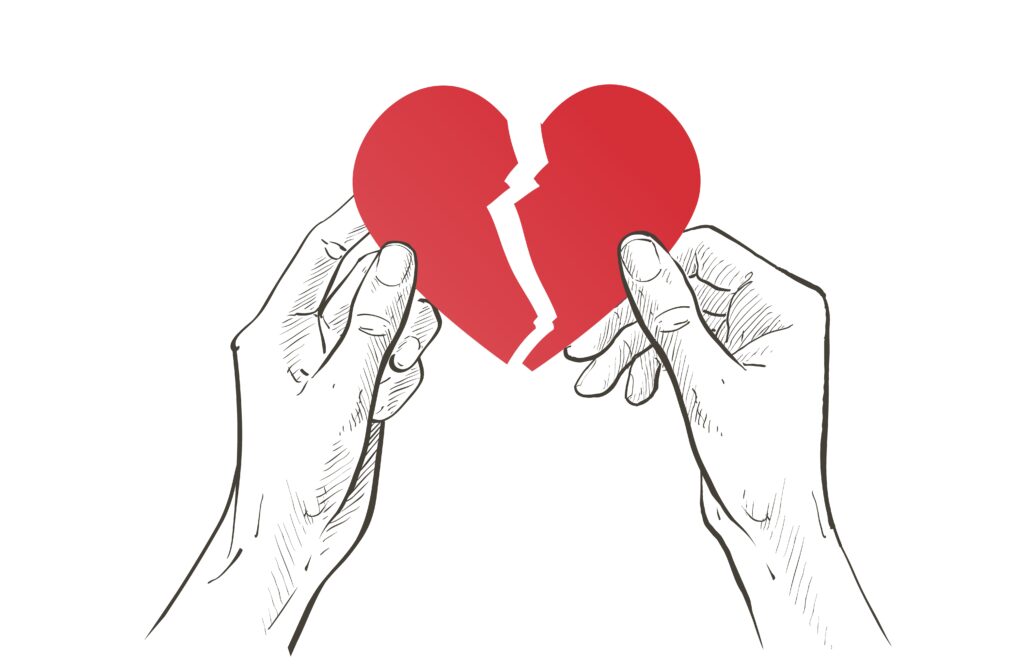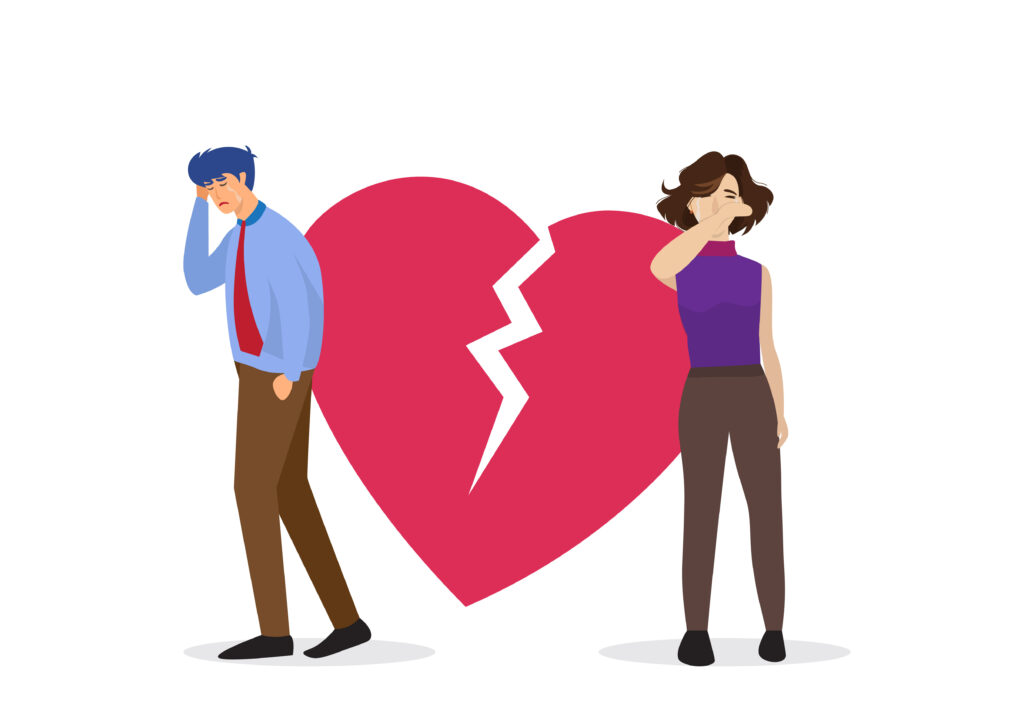Last updated on December 20th, 2024 at 01:47 pm
Heartbreak is a natural aspect of life, and it can be a challenging and painful experience. However, by understanding your own emotions and needs, exercising caution when entering a new relationship, preparing for the possibility of heartbreak, and following some additional tips, you can decrease the likelihood of experiencing severe heartbreak.
Understanding Your Own Emotions and Needs
It’s essential to be self-aware of your emotions and needs. You should understand what you want and need in a relationship and communicate it effectively to the other person. By establishing clear boundaries, you can ensure that both you and your partner are aligned and avoid misunderstandings or disappointments. Additionally, it’s crucial to have realistic expectations about your relationship, aiming for healthy and attainable goals. This can help minimize the risk of disappointment and heartbreak.
Being Cautious When Entering a New Relationship
When entering a new relationship, it’s important to take things slow and get to know the person. Being honest with yourself and the other person about your feelings is crucial. By being upfront about your intentions and expectations, you can avoid confusion or misunderstandings. It’s also essential to be realistic about the potential for a future together. While it’s easy to become swept up in the excitement of a new relationship, maintaining a realistic and level-headed perspective can help prevent disappointment and heartbreak later on.
Being Prepared for the Possibility of Heartbreak

It’s important to recognize that heartbreak is a part of life and a potential outcome in any relationship. By being open to the possibility of future relationships and cultivating resilience while learning from the experience, you can emerge stronger and better equipped for your next relationship.
Be Independent
Being independent and maintaining a fulfilling life outside of the relationship can help decrease the chances of experiencing severe heartbreak. Engaging in your own hobbies, interests, and friendships can provide you with a sense of self-worth and lessen your dependence on the relationship for happiness.
Communicate Effectively
Communication is essential in any relationship, and it is important to express your feelings and needs clearly and directly. By being open and honest with your partner, you can prevent misunderstandings and disappointment.
Learn to Recognize Red Flags
Signs of an unhealthy relationship, such as possessiveness, jealousy, or controlling behavior, can serve as red flags indicating that the relationship may not be healthy. By learning to identify these red flags, you can make an informed decision about whether to continue the relationship.
Trust Your Instincts
If something feels off in a relationship, it’s crucial to trust your instincts. If you sense that the relationship is unhealthy or that your partner is untrustworthy, it’s essential to acknowledge that feeling and make a decision based on it.
Don’t Settle
Accepting less than you deserve in a relationship can result in disappointment and heartbreak. It is essential to wait for someone who treats you well and respects your needs and desires.
Avoid Rebound
Rebounding from a broken relationship may seem appealing, but it’s crucial to take the time to heal before starting a new relationship. By giving yourself the opportunity to grieve and recover, you’ll be better equipped for a healthy and fulfilling relationship in the future.
Be Mindful of Relationships Based on External Factors
It is not unusual for individuals to enter into relationships based on external factors like convenience, security, or social status, rather than on a genuine connection and shared interests. Such relationships are often unhealthy and can result in disappointment and heartbreak.
A relationship based on convenience may arise from proximity, such as living nearby, working in the same location, or belonging to the same social circles. These types of relationships are often less likely to be founded on mutual love and respect, and more on situational factors. They may not endure if those circumstances change.
Do not prioritize the relationship over personal growth

While relationships can provide immense joy and support, it’s essential to remember that they should not take precedence over your personal growth and development. By investing in yourself and focusing on your own goals and aspirations, you’ll be better prepared to navigate the ups and downs of a relationship and will be less inclined to compromise your own well-being for the relationship’s sake.
Remember that “the one” does not exist
It’s easy to fall into the trap of believing that there is only one person meant for you, but the reality is that many potential partners exist. By maintaining an open mind and being receptive to various possibilities, you will enhance your chances of discovering a healthy and fulfilling relationship.
Be Honest with Yourself
It’s crucial to be honest with yourself regarding the reasons for entering a relationship. If you find yourself in a relationship influenced by external factors, it’s important to recognize that it may not be healthy or fulfilling. By being truthful with yourself, you can make an informed decision about whether to continue the relationship.
Conclusion
In conclusion, heartbreak is a natural part of life, and it is impossible to guarantee that a relationship will not end in heartbreak. However, by being aware of our own emotions and needs, being honest and realistic about the relationship, preparing for the outcome, and following the tips above, we can reduce the likelihood of severe heartbreak. Remember to take care of yourself and maintain a positive outlook; never let the fear of heartbreak prevent you from finding happiness.


